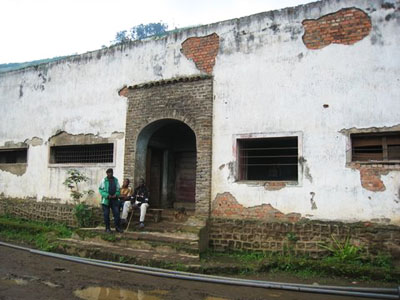
Goma, Democratic Republic of Congo — On 13 March 2008, Albert Prigogine, a well-known businessman here in Goma, was gunned down on a city street in the middle of the afternoon. For the last year and a half, a commission put in place by the governor of North Kivu, Julien Paluku, has been leading an investigation into Prigogine’s murder. As is often the case, the official investigation has yielded little in the way of justice. However, this story may turn out differently.
With scant hope of justice the old fashioned way, the Prigogine family has taken matters into their own hands. Unlike most Congolese, they have the resources to hire people to investigate the case. At a recent press conference in Goma their Belgian lawyer and a witness to the crime revealed the names of several suspects. Shortly thereafter, the lawyer revealed information crucial to the advancement of the investigation in Kinshasa, including evidence implicating some senior Congolese officials (including Governor Paluku himself), military officers, as well as businessmen in Goma.
The Prigogine case has taken on national significance, and many Congolese are asking the same question: will the government aggressively investigate and arrest suspects in his murder, or are those implicated by the family’s investigation untouchable? The Prigogine family has the means to force the government’s hand, and, if pursued, some of Goma’s most infamous criminals and corrupt officials could end up in the dock.
The justice system, or lack thereof, is one of the many problems facing eastern Congo. Sexual violence is a consequence of the conflict in this region, but the scale and brutality of the crimes perpetrated against women and children are also a result of widespread impunity. Failing to punish perpetrators of rape opens the door for others to commit this crime with little consideration of potential consequences. Civilians, not just armed men, now regularly commit rape.
The lack of justice also means that brutal crimes are often committed in the open. Goma has witnessed an alarming number of murders and attacks in broad daylight simply because people know there is almost no chance they will be held accountable. An utterly dysfunctional judicial system translates into a world where survival of the fittest prevails. Prisons are full, and it is a well-known fact that a bribe is an easy path to freedom. In a country where conflict has been raging for many years and where the army is incapable of protecting the population, justice must be within reach for any victim – regardless of his or her influence in the community.
I regularly interact with Congolese people who roll their eyes when I suggest they report a crime to the police or the army. Impunity has divided the population and the security apparatus; all that is left is skepticism and distrust. I have observed the case of Albert Prigogine with interest for the last four months. The Prigogine family benefits from international support and attention, a privilege few people have here in eastern Congo. So with this international attention and the family’s resources, will justice be done? Albert Prigogine’s case is a unique one but it still carries an important precedent – and a particularly bleak lesson if it goes the way of many other attempts at justice.

